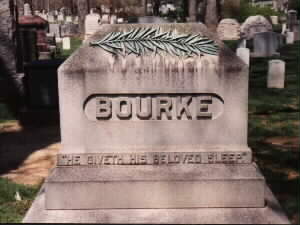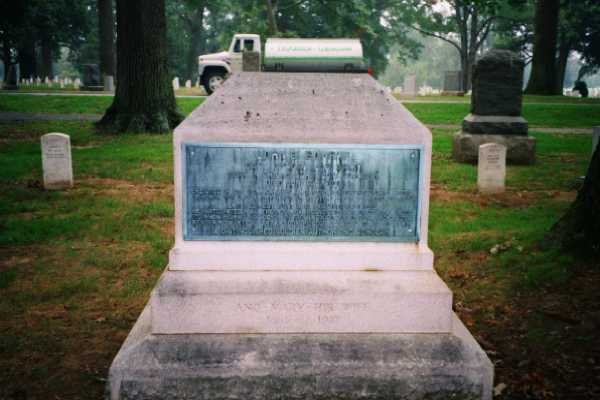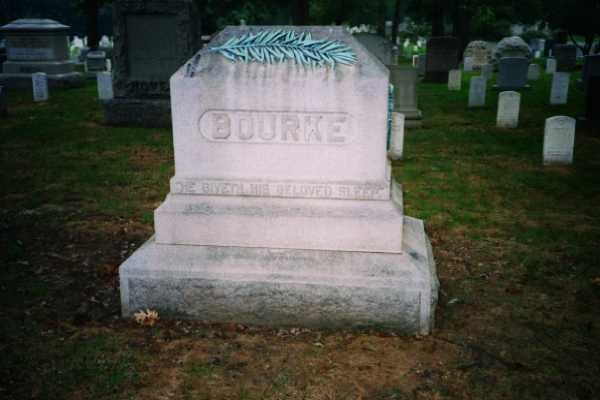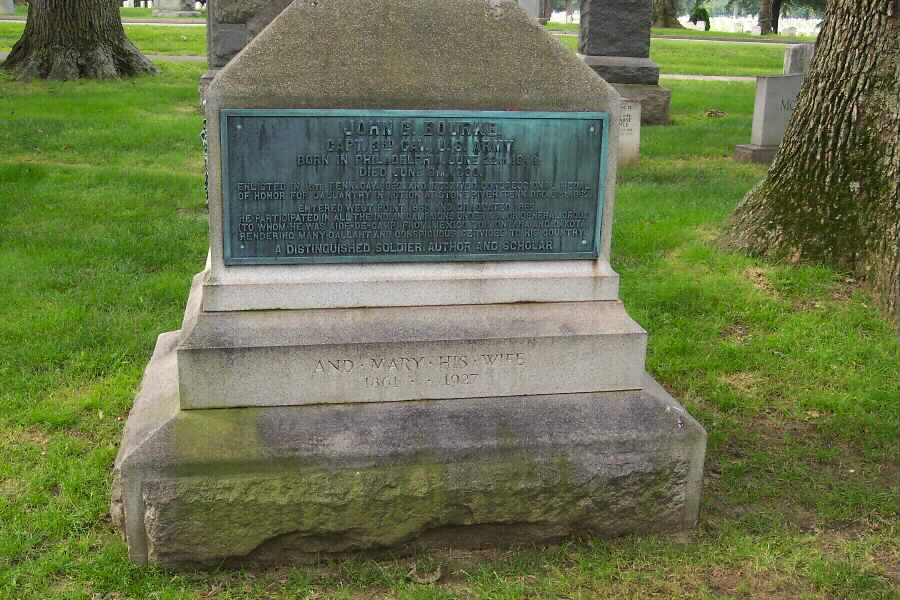Courtesy of the United States Army
John Gregory Bourke was first of all a soldier. At the age of sixteen (1862) he ran away from his comfortable, book-filled, Philadelphia home to enlist in the 15th Pennsylvania Cavalry. As a Private, he saw three years of Civil War action, receiving the Medal of Honor for his gallantry in action at Stone River, Tennessee.
Soon after mustering out in 1865, he received an appointment to West Point. He graduated in 1869, eleventh in a class of thirty-nine and received his Second Lieutenant’s commission in his lifelong regiment, the 3d United States Cavalry. But for many years he served as aide de camp to the most thoughtful of Indian fighters — Brigadier General George Crook. Bourke began his relationship with his “great chief” in 1871, shortly after Crook arrived in Arizona. It was an assignment to his liking as it kept him in the field for almost thirteen years and at the center of the action against the Apaches of the Southwest and the tribes of the great plains.
In these campaigns he acted as both adjutant and engineering officer. It was not for his soldiering, but his scholarship, powers of observation, imagination, writing ability and an easy Irish humor that kept him alive in the consciousness of succeeding generations. During his career he was given time off from his field duties to live among and study the Indians of Arizona. A language scholar from the age of eight (Latin, Greek, and Gaelic), he added the Apache tongue to his inquiries.
In the last ten years of his life (1886-96), he wrote prolifically and added prominently to the inventory of our knowledge of native Americans. He was an anthropologist of the first order. Bourke has a certain spiritual kinship with present day military historians and museologists because he was a contemporary historian, recording his military experiences with insight and care, and because his interest in museums extended to a honeymoon tour of European museums in the early 1880s. He also is an inheritor of the tradition of the soldier-scholars who passed before him on the immense stage of the American West, men like Emory, Sitgreaves, Whipple and Parke who recorded their impressions and cataloged scientific data. An Apache Campaign (1886) and On the Border With Crook (1891) are fascinating accounts of military life on then an exotic and hard frontier. They are made all the more prominent by Bourke’s sensibilities, his ear for dialogue and an imaginative literary style. The American Southwest and the American Army of the 1880s was a place of character and characters and John Bourke understood both. His sketches are always human and unfailingly capture the humor of the author and his contemporaries.
In 1888 two important players in the Geronimo campaign were both competing for the same job in the Inspector General’s department. The position meant a promotion to Major. In September President Cleveland chose Henry W. Lawton to fill the assistant Inspector General post. Passed over was John Bourke who expressed some bitterness about not getting the job and promotion. Because he felt that many deserving officers had been overlooked, in 1894 Bourke turned down a retroactive brevet promotion to Major for his service in the Southwest.
Just two weeks before his fiftieth birthday, on 8 June 1896, Bourke died from an aneurysm of the aorta.
He served with the 15th Regiment of Pennsylvania Volunteer Cavalry during the Civil War, 1862-65.
He then served with the 3rd United States Cavalry in the Southwest, 1869-96, and made intensive studies of Indian life while on military duty. He was awarded the Medal of Honor in connection with services during the Civil War.
He wrote: “On The Border With Crook,”; “General Crook In Indian Country,”; “An Apache Campaign in the Sierre Madre.”
He died on June 8, 1896 and was buried in Section 1 of Arlington National Cemetery. His wife, Mary Bourke (1861-1927), is buried with him.
BOURKE, JOHN G
- CAPT 3RD US CAV
- VETERAN SERVICE DATES: Unknown
- DATE OF DEATH: 06/08/1896
- DATE OF INTERMENT: Unknown
- BURIED AT: SECTION W SID SITE LOT 32 A
ARLINGTON NATIONAL CEMETERY
BOURKE, MARY
- DATE OF DEATH: 04/01/1927
- DATE OF INTERMENT: 04/01/1927
- BURIED AT: SECTION 1 SITE 32-A-ES
ARLINGTON NATIONAL CEMETERY - WIFE OF JG BOURKE – 3RD U. S. CAVALRY
BOURKE, JOHN G.
Rank and organization: Private, Company E, 15th Pennsylvania Cavalry. Place and date: At Stone River, Tennessee, 31 December 1862-1 January 1863. Entered service at: Chicago, Illinois. Birth: Philadelphia, Pennsylvania. Date of issue: 16 November 1887.
Citation: Gallantry in action.



Michael Robert Patterson was born in Arlington and is the son of a former officer of the US Army. So it was no wonder that sooner or later his interests drew him to American history and especially to American military history. Many of his articles can be found on renowned portals like the New York Times, Washingtonpost or Wikipedia.
Reviewed by: Michael Howard

